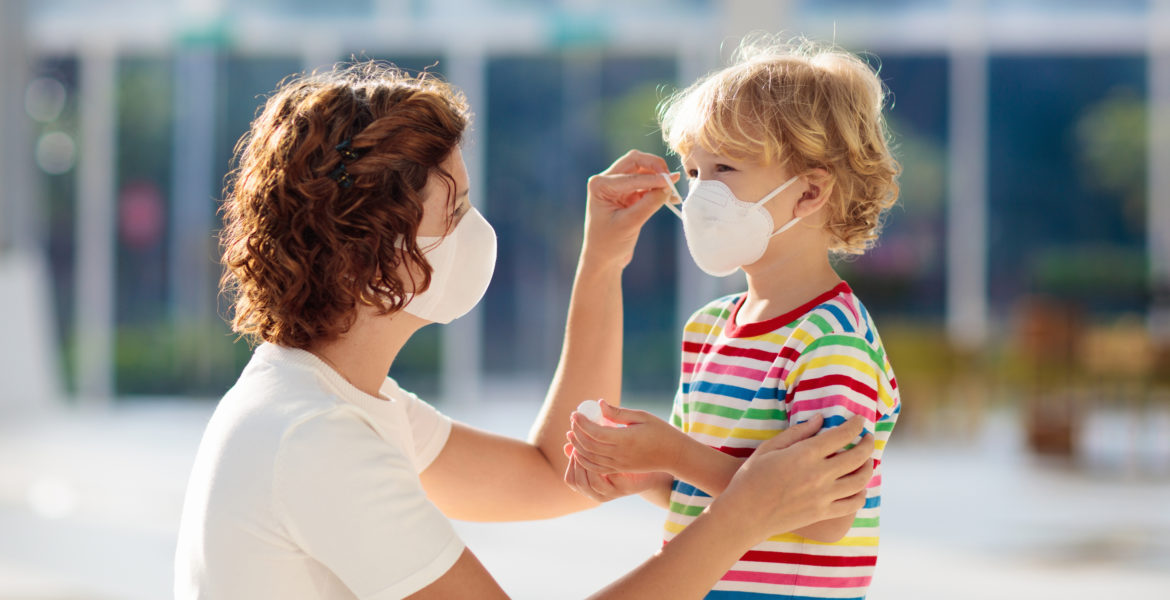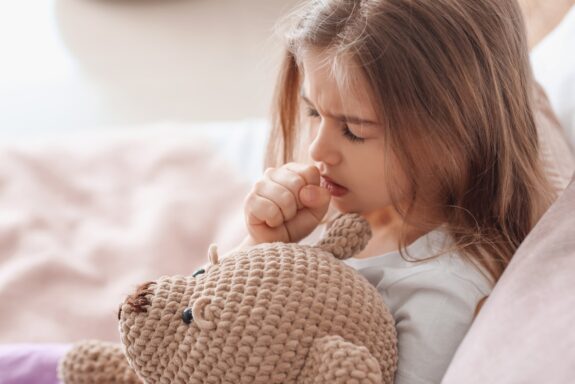
What is COVID-19?
Coronavirus disease 2019, or “COVID-19,” is an infection caused by a specific virus called SARS-CoV-2. The virus first appeared inlate 2019 in the city of Wuhan, China. But it has spread quickly since then, and there are now cases in many other places,including Europe and the United States. People with COVID-19 can have fever, cough, and trouble breathing. Problems with breathing happen when the infection affects the lungs and causes pneumonia.
How is COVID-19 spread?
COVID-19 mainly spreads from person to person, similar to the flu. This usually happens when a sick person coughs or sneezes near other people.It seems to spread most easily when people are showing symptoms
What are the symptoms of COVID-19?
Symptoms usually start a few days after a person is infected with the virus, but it can take longer for symptoms to appear. Symptoms can include: Fever, cough, feeling tired, trouble breathing and muscles aches
Some people have other symptoms, such as headache, sore throat, runny nose, or problems with their sense of smell. Some have nausea or diarrhea. For most people, symptoms will get better within a few weeks, and will not lead to long-term problems. Some people even have no symptoms at all. But in other people, COVID-19 can lead to serious problems like pneumonia, not getting enough oxygen, heart problems, or even death. This is more common in people who are older or have other health problems like heart disease, diabetes, lung disease, or cancer.
While children can get COVID-19, they seem less likely to have severe symptoms.
Should I see a doctor or nurse?
If you have a fever, cough, or trouble breathing and might have been exposed to COVID-19, call your doctor or nurse. You might have been exposed if any of the following happened within the last 14 days:
- You had close contact with a person who has the virus – This generally means being within about 6 feet of the person for 15 minutes without wearing a mask or eye protection
Many people with only mild symptoms can stay home, and away from other people, until they get better. If you do need to go to the clinic or hospital, you will need to put on a face mask. If you are severely ill and need to go to the clinic or hospital right away, you should still call ahead. This way the staff can care for you while taking steps to protect others.
Will I need a test?
If your doctor or nurse suspects you have COVID-19, they might take a sample of fluid from inside your nose or your mouth, and send it to a lab for testing.
How is COVID-19 treated?
There is no specific treatment for COVID-19. Many people will be able to stay home while they get better, but people with serious symptoms or other health problems might need to go to the hospital
Mild illness – Most people with COVID-19 can rest at home until they get better. People with mild symptoms like fever and cough seem to get better after about 2 weeks, but it’s not the same for everyone.
If you are recovering from COVID-19, it’s important to stay home, and away from other people, until your doctor or nurse tells you it’s safe to go back to your normal activities. This decision will depend on how long it has been since you had symptoms. In general, you may go back to return to normal activities 10 days after you first got sick, have been fever free for 72 hours without the use of fever reducing medications and your symptoms are improving. In some cases, whether you have had a negative test twice, at least 24 hours apart (showing that the virus is no longer in your body).
Severe illness – If you have more severe illness with trouble breathing, you might need to stay in the hospital, possibly in the intensive care unit (also called the “ICU”).
Can COVID-19 be prevented?
There are things you can do to reduce your chances of getting COVID-19:
- Wash your hands with soap and water often. This is especially important after being in public and touching other people or surfaces. Make sure to rub your hands with soap for at least 20 seconds, cleaning your wrists, fingernails, and in between your fingers. Then rinse your hands and dry them with a paper towel you can throw away.
- If you are not near a sink, you can use a hand gel to clean your hands. The gels with at least 60 percent alcohol work the best. But it is better to wash with soap and water if you can.
- Avoid touching your face with your hands, especially your mouth, nose, or eyes.
- Try to stay away from people who have any symptoms of the infection.
- Avoid crowds. If you live in an area where there have been cases of COVID-19, try to stay home as much as you can.
- Even if you are healthy, limiting contact with other people can help slow the spread of disease. Experts call this “social distancing”. Whenever possible, remain 6 feet away from others.
- Wear a face mask whenever you cannot remain 6 feet from others
What should I do if someone in my home has COVID-19?
If someone in your home has COVID-19, there are additional things you can do to protect yourself and others:
- There is not yet a vaccine to prevent COVID-19
- Keep the sick person away from others – The sick person should stay in a separate room and use a separate bathroom if possible. They should also eat in their own room.
- Use face masks – The sick person should wear a face mask when they are in the same room as other people. If you are caring for the sick person, you can also protect yourself by wearing a face mask when you are in the room. This is especially important if the sick person cannot wear a mask.
- Wash hands – Wash your hands with soap and water often
- Clean often – Here are some specific things that can help
- Wear disposable gloves when you clean. It’s also a good idea to wear gloves when you have to touch the sick person’s laundry, dishes, utensils, or trash.
- Regularly clean things that are touched a lot. This includes counters, bedside tables, doorknobs, computers, phones, and bathroom surfaces.
- Clean things in your home with soap and water, but also use disinfectants on appropriate surfaces. Some cleaning products work well to kill bacteria, but not viruses, so it’s important to check labels. The United States Environmental Protection Agency (EPA) has a list of products here: www.epa.gov/pesticide-registration/list-n-disinfectants-use-againstsars-cov-2.
What should I do if there is a COVID-19 outbreak in my area?
The best thing you can do to stay healthy is to wash your hands regularly, avoid close contact with people who are sick and stay home if you are sick. In addition, to help slow the spread of disease, it’s important to follow any official instructions in your area about limiting contact with other people. Even if there are no cases of COVID-19 where you live, that could change in the future.
Where can I go to learn more?
As we learn more about this virus, expert recommendations will continue to change. Check with your doctor or public health official to get the most updated information about how to protect yourself. You can also find more information about COVID-19 at the following websites:
- United States Centers for Disease Control and Prevention (CDC): www.cdc.gov/COVID19
- World Health Organization (WHO): www.who.int/emergencies/diseases/novel-coronavirus-2019
Adapted from: https://www.uptodate.com/contents/coronavirus-disease



